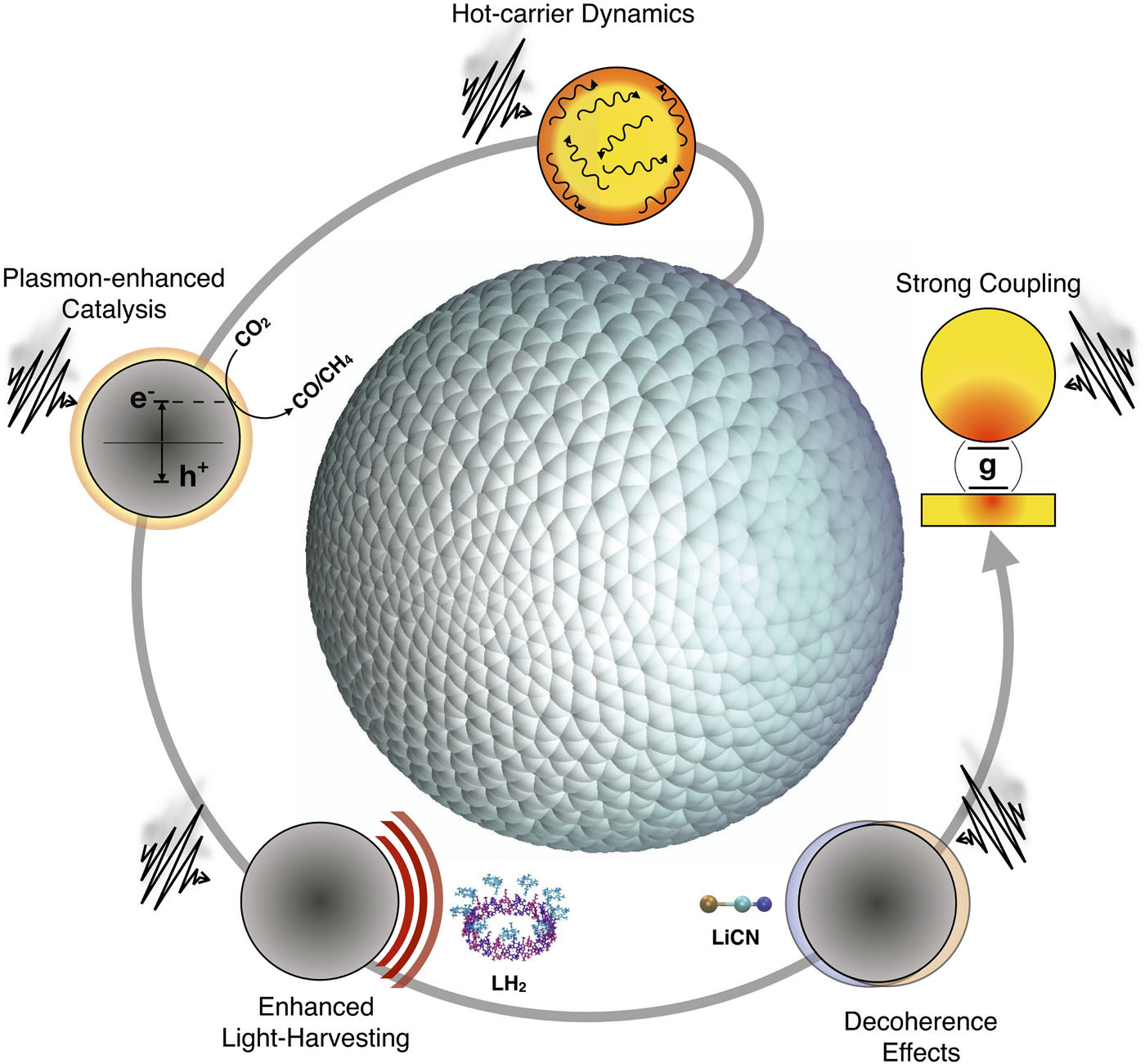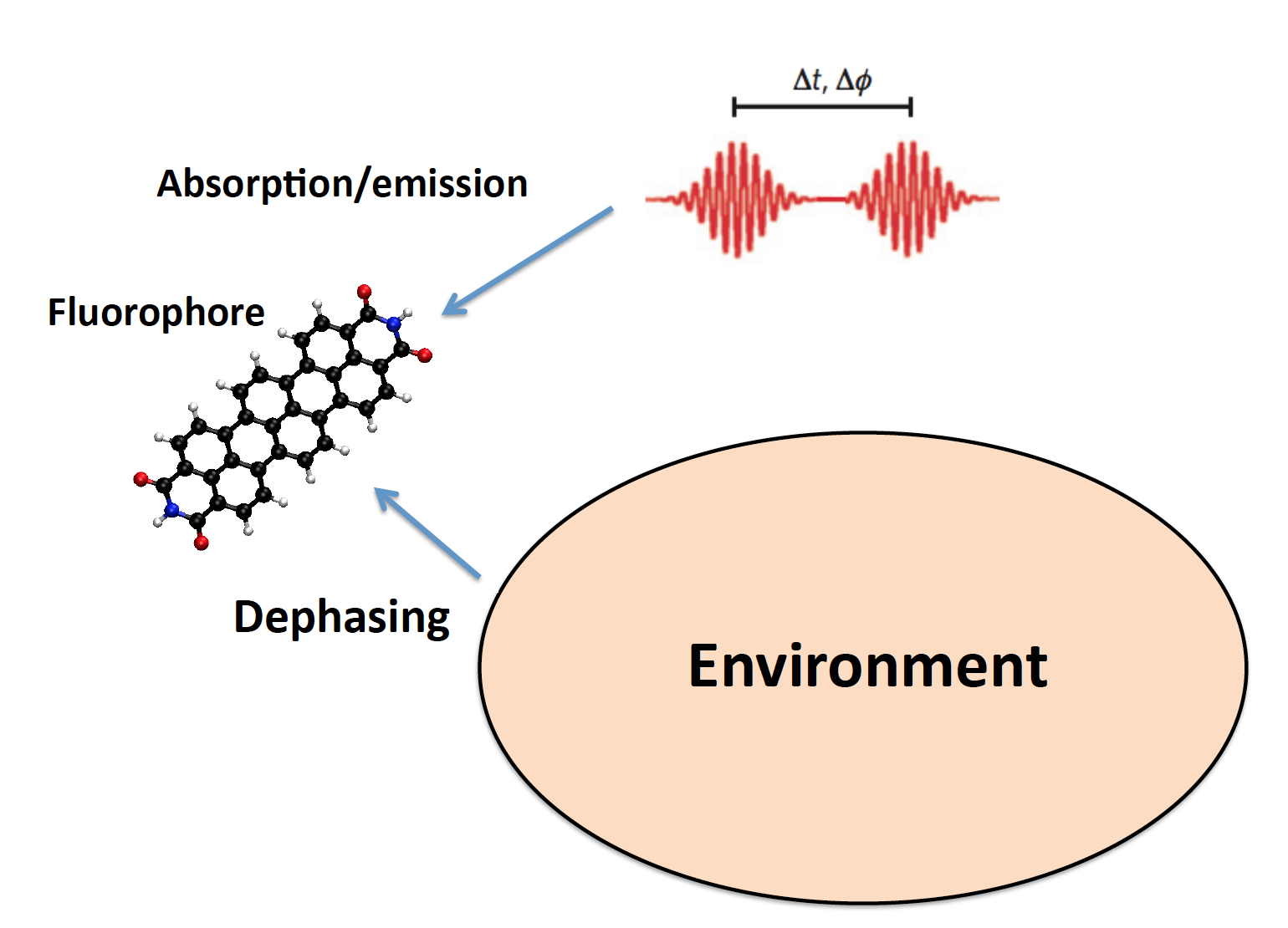

Ultrafast spectroscopy is a powerful tool to investigate, control and manipulate quantum coherence in molecules and complex systems. Detection of electronic and vibrational coherence in biological systems and in plasmonic nanostructures is a matter of stimulating and open debate. Recently, specific ultrafast spectroscopy techniques could probe a single molecule. To understand the outcomes of such experiments, theoretical and computational approaches are required, able to include all the important features of the simulated system. Using a recently developed computational approach coupling the theory of open quantum systems, by means of stochastic Schrödinger equation, with a quantum-chemical description of the molecular target, we have simulated a two-pulse experiment on organic fluorophores. Moreover, electronic decoherence can be thought as a further design element in molecular nanoplasmonics: metal nanoparticle effects on the absorption of light by a nearby molecule may be strongly affected (even qualitatively, i.e., suppression vs enhancement) by molecular decoherence. We are interested in developing time-resolved ab initio approaches to study electron dynamics in molecules and complex systems in presence of decoherence sources. (Emanuele Coccia)
